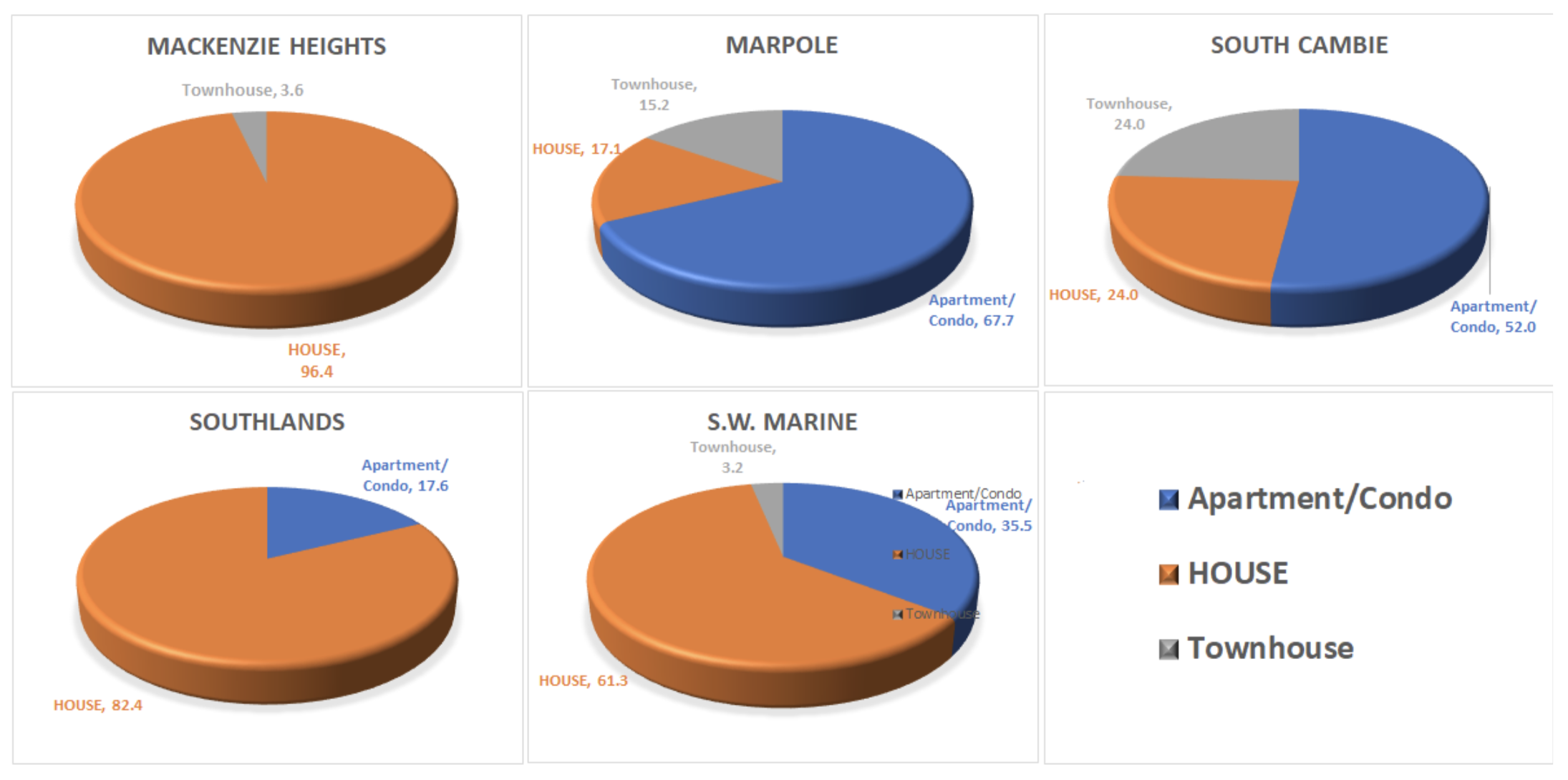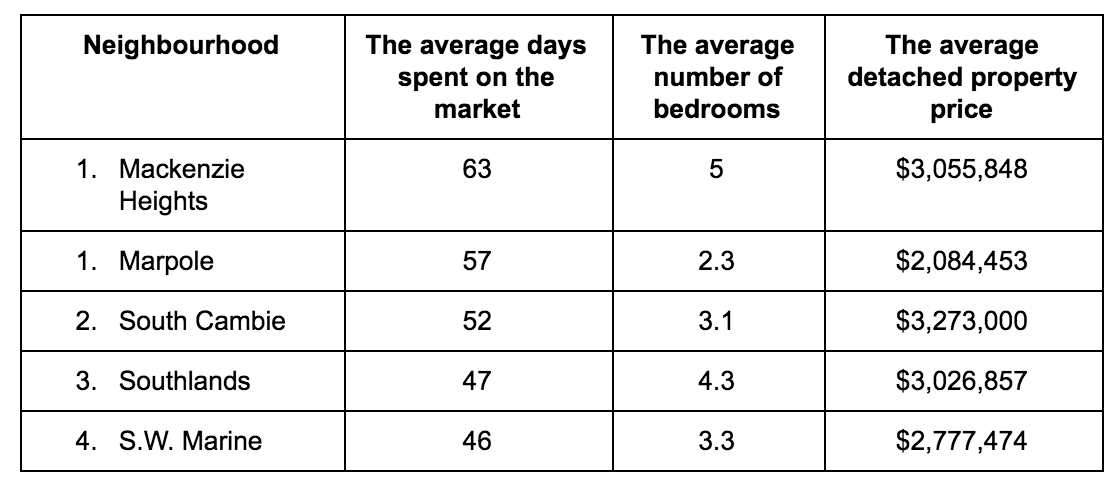In comparing 2016 to 2019, the average days on the market (DOM) for a home listed on Vancouver’s housing market is lasting doubled. This means that some Vancouver neighbourhoods will struggle in 2019-2020.
Data compiled by Roomvu, a Vancouver-based real estate marketing and analytics firm, shows that the days on the market has nearly doubled from 2016 to 2019, and in some neighbourhoods, it has quadrupled. What this means is that some Vancouver neighbourhoods will struggle in 2019-2020.

Figure 1: Number of days on the market (DOM) 2016 vs. 2019
Although the slowdown in the housing market has brought more prominence to the East Versus West, what is the most interesting about this data is that the top five neighbourhoods that are more likely to take longer to sell in the remainder of 2019, are also all located in South Vancouver regardless of neighbourhood similarities to Northern neighbourhoods like Shaughnessy and Point Grey.

Figure 2: Number of days on the market (DOM) East Vancouver and Vancouver West
Top 5 neighbourhoods where housing lasts the longest on the market and are expected to struggle in 2019-2020 (Figure 3):
- Mackenzie Heights
- Marpole
- South Cambie
- Southlands
- S.W. Marine

Figure 3: Top 5 neighbourhoods where housing lasts the longest on the market.
Longer days on the market typically gives off the impression that these neighbourhoods are not as popular, run-down or in a bad part of town. But South Vancouver is definitely not known for any of these stereotypes.
In analyzing this further, the longer days on the market for South Vancouver is a result of factors:
- The type of property
- The affordability of housing
- Location
- How well-known the area is
Firstly, the most common type of property in the South Vancouver area is 3-4+ bedroom house with the exception of some areas that have a few more apartments and townhomes like Marpole and South Cambie (Figure 4). But what does this mean for an area with the majority of housing being larger and with 3-4+ bedrooms? What does this mean for the days on the market? This brings us to the second point which is affordability.

Figure 4: The average home type for the top 5 neighbourhoods where housing lasts the longest on the market.
As we all know living in Vancouver is expensive, which means the greater a property is in square feet, the greater the price. And because 3-4+ bedroom condos/houses are the most prominent for South Vancouver, affordability becomes a factor. For instance, MacKenzie Heights (the number one on our list for the longest days on the market) has an average sold price of 3.0 million dollars—which is well out of budget for many Vancouverites.
In addition, as mentioned briefly previously, South Vancouver is located along the Fraser River, close to Vancouver’s International Airport and directly in contact with two of Vancouver’s major highways, Granville Street and Cambie Street, which run directly to downtown Vancouver. Because of this, it makes the location quite appealing to many homebuyers and thus, adds to the increased price and affordability of housing for these South Vancouver neighbourhoods.
Lastly, South Vancouver is not as well-known or ‘popular’ as other neighbourhoods more Northern like Shaughnessy or Point Grey even though they offer similar characteristics (Table 1 & 2).
Table 1: Neighbourhood Statistics of top five days on market (DOM)

Table 2: Similar neighbourhoods, but fewer days on the market

In Vancouver 2019, homes are lasting twice as long or longer on the market than then they once did 2016–some even quadruple. And although we want to be quick to jump to conclusions about certain neighbourhoods that appear to have longer days on the market than others, there are many other factors that contribute to why certain neighbourhoods take longer to sell such as the type of property, the affordability of the housing, the location and how well-known the area is.
